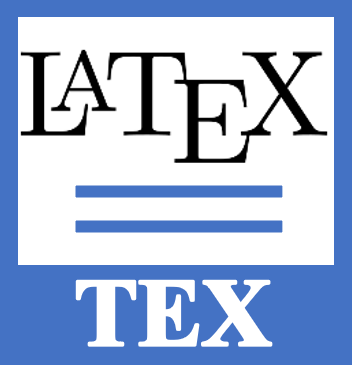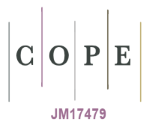Publication Ethics
Publication Ethics and Publication Malpractice Statement
The ethical policy and publication malpractice statement of Al-Mustansiriyah Journal of Science (MJS) is grounded in the Code of Conduct and Best-Practice Guidelines for Journal Editors, as outlined by the Committee on Publication Ethics (COPE) in 2011. It complies with the standards set by the MJS Editorial Board, and anyone involved with MJS, such as readers, authors, reviewers, or editors, is expected to follow these ethical guidelines. Furthermore, the ethical policy of MJS determines which research papers or articles submitted should be published in the relevant issue. For more information on publishing and ethical guidelines, please visit http://publicationethics.org.
General Duties and Responsibilities of Editors
- The Editors of the journal should have the full authority to reject/accept a manuscript.
- The Editors of the journal should maintain the confidentiality of submitted manuscripts under review or until they are published.
- The Editor-in-Chief should decide on submitted manuscripts, whether published or not, with other editors and reviewers.
- The editor will evaluate submitted papers based on the paper’s importance, originality, and clarity, the study’s validity, and its relevance to the journal's scope without regard to the author’s race, gender, ethnic origin, sexual orientation, citizenship, political philosophy, religious belief or institutional affiliation.
- The Editors of the journal should preserve the anonymity of reviewers.
- The Editors of the journal should disclose and try to avoid any conflict of interest.
- The Editors of the journal should maintain academic integrity and strive to meet the needs of readers and authors.
- The journal editors should be willing to investigate plagiarism and fraudulent data issues and be willing to publish corrections, clarifications, retractions, and apologies when needed.
- The Editors of the journal should limit themselves only to the intellectual content.
- The journal editors must not disclose any information about submitted manuscripts to anyone other than the corresponding author, reviewers, potential reviewers, other editorial advisers, and the publisher as appropriate.
- Unpublished materials disclosed in a submitted paper will not be used by the editor or the editorial board members for their own research purposes without the author's explicit written consent.
General Duties and Responsibilities of Reviewers
- The peer-reviewing process assists the editor and the editorial board in making editorial decisions.
- The Reviewers should maintain the confidentiality of the manuscripts, that they are invited to review.
- Any manuscripts received for review must be treated as confidential documents. They must not be disclosed to or discussed with others except as authorized by the editor.
- Reviews should be conducted objectively and personal criticism of the author is inappropriate. Referees should express their views clearly with supporting arguments.
- Any selected referee who feels unqualified to review the research reported in a manuscript or knows that its prompt review will be impossible, should notify the editor and withdraw from the review process.
- The Reviewers should provide comments in time that will help editors make a decision on whether the submitted manuscript is to be published or not.
- The Reviewers are bound to treat the manuscript received for peer reviewing as confidential and must not use the information obtained through peer review for personal advantage.
- The Reviewers' comments on each invited manuscript should be technical, professional, and objective.
- Reviewers should identify cases in which relevant published work referred to in the paper has not been cited in the reference section. They should point out whether observations or arguments derived from other publications are accompanied by the respective source.
- Reviewers should notify the editor of any substantial similarity or overlap between the manuscript under consideration and any other published paper of which they have personal knowledge.
- The Reviewers should not review the manuscripts in which they have found conflicts of interest with any authors, companies, or institutions.
General Duties and Responsibilities of Authors
- Submit only entirely original works, and appropriately cite or quote the work and/or words of others. Publications that have been influential in determining the nature of the reported work should also be cited.
- Manuscripts must be submitted only in English and should be written according to sound grammar and proper terminology.
- Manuscripts must be submitted to understand that they have not been published elsewhere and are not currently under consideration by another journal published by or any other publisher.
- The corresponding author ensures that all contributing co-authors and no uninvolved persons are included in the author list and is responsible for ensuring that all the other coauthors have approved the manuscript article's publication.
- The author's responsibility is to ensure that the manuscripts emanating from a particular institution are submitted with the approval of the necessary institution.
- It is a condition for submitting a manuscript that the authors permit editing of the paper for readability.
- Authors are requested to identify who provided financial support for the conduct of research and/or preparation of the manuscript and briefly describe the role of the founder/ sponsor in any part of the work.
- All authors should include a statement disclosing any financial or other substantive conflicts of interest that may be construed to influence the results or interpretation of their manuscript.
- All authors agreed to allow the corresponding author to correspond with the editorial office to review the edited manuscript and proof.
- All authors must know that the submitted manuscripts under review or published with MJS are subject to screening using Plagiarism Prevention Software. Plagiarism is a serious violation of publication ethics.
- Authors of original research reports should present an accurate account of the work performed as well as an objective discussion of its significance.
- Underlying data should be represented accurately in the paper. A paper should contain sufficient detail and references to permit others to replicate the work. Fraudulent or knowingly inaccurate statements constitute unethical behavior and are unacceptable.
- By submitting a manuscript, the author(s) retain the rights to the published material. In case of publication, they permit the use of their work under a [CC BY license], which allows others to copy, distribute, and transmit the work as well as to adapt the work and make commercial use of it.
- Authors could be asked to provide the raw data of their study together with the paper for editorial review and should be prepared to make the data publicly available if practicable. In any event, authors should ensure accessibility of such data to other competent professionals for at least ten years after publication (preferably via an institutional or subject-based data repository or other data center), provided that the confidentiality of the participants can be protected and legal rights concerning proprietary data do not preclude their release.
- When the author(s) discovers a significant error or inaccuracy in his/her own published work, the author must promptly notify the journal editor or publisher to retract or correct the manuscript.
- In the case of an authorship dispute during peer review or after acceptance and publication, the Journal will not be in a position to investigate or adjudicate. Authors will be asked to resolve the dispute themselves. If they are unable, the Journal reserves the right to withdraw a manuscript from the editorial process or in the case of a published paper raise the issue with the authors’ institution(s) and abide by its guidelines.
- To sustain the peer review system, authors have an obligation to participate in the peer-review process to evaluate manuscripts from others.
- We reserve the right to reject a paper even after it has been accepted if it becomes apparent that there are serious problems with its scientific content or our publishing policies have been violated.
- Articles can only be withdrawn before their acceptance, except in cases that contain errors or have been accidentally submitted twice.
- Occasionally, articles may represent infringements of professional ethical codes, such as multiple submissions, bogus claims of authorship, plagiarism, fraudulent use of data, or the like.
- Articles that include errors that are duplicates of or very similar to other published article(s), or are determined to violate the journals’ publishing ethics guidelines in the view of the editors, may be withdrawn.
- For studies involving humans, informed consent should be obtained from all research participants for experimentation.
- Ethical approval must be obtained before conducting the research for all studies involving humans and animals. All experiments must be performed in accordance with relevant institutional and national guidelines and regulations.
- All authors must ensure that all authors read the submission final checklist before being submitted to Al-Mustansiriyah Journal of Science (MJS).
General Duties and Responsibilities of the Publisher
- MJS is committing to ensure that editorial decisions on manuscript submissions are final.
- MJS is promising to ensure that the decision on manuscript submissions is only made based on professional judgment and will not be affected by any commercial interests.
- MJS is committing to maintaining the integrity of academic and research records.
- MJS monitors the ethics of the Editor-in-Chief, Associate Editors, Editorial Board Members, Reviewers, Authors, and Readers.
- MJS is always checking the plagiarism and fraudulent data issues involved in the submitted manuscript.
- MJS is always willing to publish corrections, clarifications, and retractions involving its publications as and when needed.
Violation of Publication Ethics
- Plagiarism: Plagiarism intentionally uses someone else’s ideas or other original material as if they are one's own. Copying even one sentence from someone else’s manuscript, or even one of your own that has previously been published, without proper citation, is considered by MJS Journal as plagiarism. All manuscripts under review or published with MJS are subject to screening using plagiarism-prevention software. Thus, plagiarism is a serious violation of publication ethics. The development of CrossCheck is a service that helps editors to verify the originality of papers. CrossCheck is powered by Turnitin software, known in the academic community as a provider of Turnitin. For a searchable list of all journals in the CrossCheck database.
- Data Fabrication and Falsification: Data fabrication and falsification mean the researcher did not carry out the study but made up data, and results and recorded, or reported the fabricated information. Data falsification means the researcher did the experiment but manipulated, changed omitted data, or results from the research findings.
- Simultaneous Submission: Simultaneous submission occurs when a manuscript (or substantial sections from a manuscript) is submitted to a journal when it is already under consideration by another journal.
- Duplicate Publication: Duplicate publication occurs when two or more papers, without full cross-referencing, share essentially the same hypotheses, data, discussion points, and conclusions.
- Redundant Publications: Redundant publications involve the inappropriate division of study outcomes into several articles, most often consequent to the desire to plump academic vitae.
- Improper Author Contribution or Attribution: All listed authors must have made a significant scientific contribution to the research in the manuscript and approved all its claims. Don’t forget to list everyone who made a significant scientific contribution, including students and laboratory technicians.
- Citation Manipulation: Citation Manipulation includes excessive citations in the submitted manuscript that do not contribute to the scholarly content of the article and have been included solely to increase citations to a given author’s work or articles published in a particular journal. This leads to misrepresenting the importance of the specific work and journal in which it appears and is thus a form of scientific misconduct.
- Sanctions: If there are documented violations of any of the above-mentioned policies in any journal, regardless of whether or not the violations occurred in a journal, the following sanctions will be applied:
- Immediate rejection of the infringing manuscript.
- Immediate rejection of every other manuscript submitted to another journal published by any of the co-authors of the infringing manuscript.
- Prohibition will be imposed for a minimum of 36 months against all of the authors for any new submissions to any journal, either individually or in combination with other authors of the infringing manuscript.
- Prohibition against all of the authors from serving on the Editorial Board of any journal.
Handling Cases of Misconduct
Once the journal confirms a violation of the publication ethics, MJS addresses ethical concerns diligently, following an issue-specific standard practice as summarized below.
- The first action of the section's editor is to inform the Editor and the Editorial Office by supplying copies of the relevant material and a draft letter to the corresponding author asking for an explanation in a nonjudgmental manner.
- If the corresponding author's explanations are unacceptable, and it seems that serious unethical conduct has occurred, the matter is referred to the Editorial board via the Editorial Office. After deliberation, the editorial board will decide whether the case is sufficiently serious to warrant a ban on future submissions.
- If the infraction is less severe, the Editor, upon the advice of the Publication Committee, sends the author a letter of disapproval and reminds the author about MJS publication and ethical policies; if the manuscript has been published, the Editor may request the author to publish an apology in the journal to correct the record.
- A notification will be sent to the corresponding author. Any work by the author responsible for the violation or any work these persons co-authored under review by the MJS journal will be rejected immediately.
- The authors are prohibited from serving on the MJS editorial board and serving as a reviewer for the MJS Journal. However, MJS reserves the right to take more action.
- In extreme cases, notifications will be sent to the authors' affiliations, and the authors are prohibited from submitting their work to MJS for 5 years.
- In serious fraud cases that result in the retraction of the article, a retraction notice will be published in the journal and linked to the article in the online version. The online version will also be marked “retracted” with the retraction date.
Bioethics For Medical Researches
- Human Subjects
Any work involving human subjects must be carried out in accordance with the Code of Ethics of the World Medical Association Declaration of Helsinki. Authors in their manuscripts must provide a statement that informed consent was obtained from all human research participants for experimentation. The privacy rights of human participants must always be protected. Ethical approval must be obtained before conducting the research for all studies. Authors must be able to provide the journal editorial office with further information upon request.
- Animal Studies
All animal studies are recommended to follow ARRIVE reporting guidelines (PLoS Bio 8(6), e1000412,2010) for the design, analysis, and reporting of scientific research, and authors should clearly explain such guidance has been followed in their submitted manuscripts. Sex and other characteristics of animals that may influence results must be described. Furthermore, we recommend the American Veterinary Medical Association (AVMA) Guidelines for the Euthanasia of Animals (2020), which provide guidance on veterinary best practices for the anesthesia and euthanasia of animals.

















